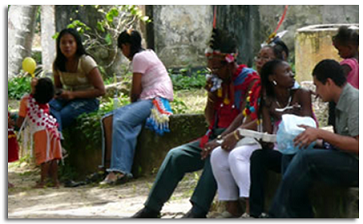[SPEAKER]
Community membership is deeply embedded in traditional definitions of the CHW workforce. The assumption is that someone from the community knows its people, has credibility, and may already be known as a leader or “natural helper.” This community membership criterion also validates one of CHWs’ main domains of expertise, namely their claim to knowledge based on personal experience, as distinct from “academic learning.”
In practical terms, however, an employer may find this criterion difficult to implement. How does one assess whether an individual is a member of a particular community? If an individual comes from a similar socioeconomic and cultural background as the population served, does it matter whether she has actually lived or worked in the specific geographic community to be served? Is it possible for someone from “outside” a particular community to gain credibility based on performance? Can we reduce this quality of membership and credibility to a trainable skill set?
Various attempts have been made to capture “community membership” in law or regulation. One bill introduced into Congress in the 1990s defined CHWs as residing in the same ZIP code as the population to be served. Such crude measures clearly leave something to be desired, but employers need and deserve guidance in how best to implement this kind of qualification.
Another side of this question is what happens when experienced CHWs move from one community to another. Can they meet this criterion in a new community? What happens to a small rural community that has no one qualified for or interested in CHW positions? Can it recruit from outside the community?
 The dilemma of community membership as an essential qualification is another current issue facing members of the CHW workforce.
The dilemma of community membership as an essential qualification is another current issue facing members of the CHW workforce.
